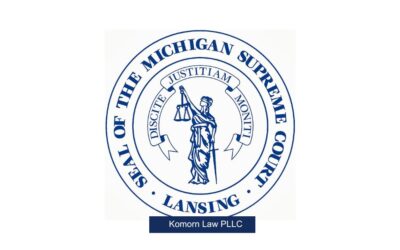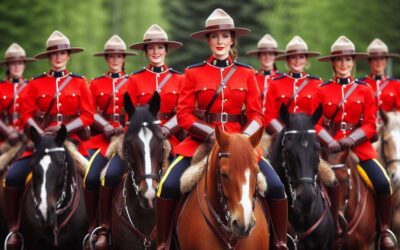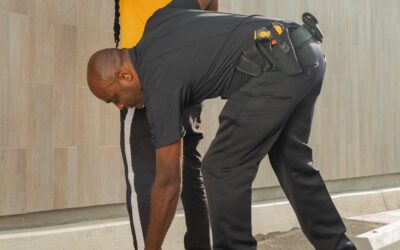Illegal Gun Ownership in Michigan: Insights and Statistics
The issue of illegal gun ownership in Michigan is a complex one, influenced by various factors ranging from criminal activity to loopholes in regulatory measures.
Understanding who owns illegal guns is crucial for developing targeted interventions and addressing the root causes of firearms-related crime. Let’s explore the demographics and statistics surrounding illegal gun ownership in Michigan.
Demographic Insights
- Criminal Element: A significant proportion of illegal guns in Michigan are owned by individuals with criminal backgrounds. This includes convicted felons, individuals with restraining orders, and those involved in illicit activities such as drug trafficking and gang violence.
- Youth Involvement: Youth involvement in illegal gun possession is a concerning trend in Michigan. According to data from law enforcement agencies, a notable number of illegal firearms are seized from young individuals involved in street crime and gang activity.
- Trafficking Networks: Illegal firearms often flow through sophisticated trafficking networks, involving individuals with connections to criminal organizations and underground markets. These networks facilitate the movement of guns across state lines, making it challenging for law enforcement to track and intercept illegal weapons.
Statistical Overview
- ATF Tracing Data: Data from the Bureau of Alcohol, Tobacco, Firearms and Explosives (ATF) provides insights into the origins of illegal guns recovered by law enforcement agencies in Michigan. From 2016 to 2020, ATF reports indicate that a significant percentage of traced firearms were obtained through illegal channels, including straw purchases, thefts, and unregulated sales.
- Crime Gun Analysis: Crime gun analysis conducted by law enforcement agencies offers valuable insights into the types of firearms used in criminal activities. In Michigan, handguns are the most commonly recovered illegal firearms, followed by rifles and shotguns. This underscores the prevalence of illegal handguns in urban areas, where they are often used in acts of violence and intimidation.
- Geographical Patterns: Geographical analysis of illegal gun ownership in Michigan reveals regional disparities in firearms-related crime. Urban areas such as Detroit and Flint experience higher rates of illegal gun possession and firearms-related violence compared to rural areas. Factors such as poverty, unemployment, and lack of access to legal firearms contribute to these disparities.
Addressing the Issue
Combatting illegal gun ownership in Michigan requires a multifaceted approach that addresses the underlying factors driving firearms-related crime. This includes:
- Strengthening enforcement efforts to disrupt trafficking networks and dismantle illegal firearms markets.
- Implementing targeted interventions aimed at at-risk youth to prevent their involvement in gun-related criminal activities.
- Enhancing regulatory measures to close loopholes and prevent the diversion of legal firearms into the illegal market.
Understanding the demographics and statistics surrounding illegal gun ownership in Michigan is essential for developing effective strategies to combat firearms-related crime. By targeting enforcement efforts, addressing root causes, and fostering collaboration between law enforcement agencies and community stakeholders, Michigan can work towards reducing the prevalence of illegal guns and creating safer communities for all residents.
Understanding Michigan Law
Michigan’s laws regarding firearm ownership and possession are outlined in the Michigan Compiled Laws (MCL). Specifically, MCL 28.422 details the criteria for obtaining a Concealed Pistol License (CPL) and outlines the procedures for individuals seeking to restore their firearms rights.
MCL Section 750.224 is another location to find laws about weapons in Michigan.
MCL – Section 750.224a has more.
Go through each section by using the next arrow on the website.
You may want to come back and take a look at the laws in more detail as this article does not dive too deep into the laws. There’s a lot.
Real Questions from Real Calls
Question: What if I get caught with an unregistered gun in Michigan?
Answer: Say as little as possible and call a lawyer ASAP.
Real Questions from Real Calls
Question: What about my Long Gun in Michigan?
Answer: Universal background checks
Previous state law only required background checks for pistol sales and effectively didn’t mandate such criminal background checks or registration for other types of firearms, such as rifles.
A prohibition on purchasing a firearm without a license in the state, as well as a new mandate for universal background checks for all firearm sales, go into effect in Feb 2024. This will not impact individuals who have already purchased long guns without such requirements. More you need to know about the new laws.

Steps to Restore Second Amendment Rights
1. Expungement of Convictions
For individuals with criminal convictions, pursuing expungement may be the first step towards restoring their firearms rights. Michigan’s recent expungement laws allow for the sealing of certain criminal records, enabling individuals to regain their firearms privileges under specific circumstances. Refer to MCL 780.621 for more information on the expungement process.
2. Petition for Restoration
Those who have lost their firearms rights due to criminal convictions or mental health adjudications can petition the court for restoration. This involves filing a petition with the circuit court in the county of residence. The court will review the individual’s case, considering factors such as rehabilitation, conduct since the conviction, and any mitigating circumstances. Consult MCL 28.425 for detailed information on the restoration process.
3. Compliance with Federal Requirements
In addition to state laws, individuals seeking to restore their firearms rights must also comply with federal regulations. This may include completing background checks and adhering to any federal restrictions on firearms ownership.
Seeking Legal Counsel
Navigating the process of restoring Second Amendment rights can be complex, especially considering the legal intricacies involved. As such, seeking guidance from a qualified attorney specializing in firearms law is highly recommended.
An attorney can provide invaluable assistance, ensuring that individuals understand their rights and obligations under both state and federal law.
Real Questions from Real Calls
Question: The application from the ATF Form 4473 asks if I use any illegal drugs. I have my medical marijuana card and it’s legal in Michigan right? So can I get a gun?
Answer: Unless you are the president’s son if you answered “No” on the form where it asks if you use illegal drugs you would be lying and your gun rights probably taken away and possibl;y charged with a crime.
Marihuana is still illegal federally and still in the public health code and listed as a controlled substance 1 in Michigan.
As it states on the ATF Form 4473 Part 1
Q: Are you an unlawful user of, or addicted to, marijuana or any depressant, stimulant, narcotic drug, or any other controlled substance?
Warning: The use or possession of marijuana remains unlawful under Federal law regardless of whether it has been legalized or decriminalized for medicinal or recreational purposes in the state where you reside.
If you got this far here are some news articles
Here’s what you need to know about Michigan’s gun laws that take effect Tuesday (Feb 13, 2024)
Michigan: House Passes Long Gun Registration & Permit Mandate (March 10, 2023)
With a Stroke of the Pen, Biden ATF Criminalizes Tens of Thousands of Private Firearm Sellers (April 12, 2024)
Related Articles
No Results Found
The page you requested could not be found. Try refining your search, or use the navigation above to locate the post.
More Posts
Carrying a Firearm Under the Influence of Alcohol in Michigan
Laws and Penalties in Michigan of Carrying a Concealed Firearm or EMD Under the Influence of Alcohol or Controlled SubstanceAn individual shall not An individual shall...
Are there exceptions that justify warrantless searches?
Exceptions to your 4th Amendment Rights against Search and Seizure (more to come).The Fourth Amendment of the U.S. Constitution safeguards citizens by prohibiting...
Warrantless Searches in Michigan
I don't need a warrant for that...In Michigan, as in the rest of the United States, the Fourth Amendment of the fading Constitution provides individuals with protection...
One of Michigan’s Top DUI Attorneys
We aggressively defend all aspects of traffic law, from simple civil infractions to more serious alcohol and drug-related offenses. Don't wait till the last second to...
Michigan DUI Laws and Consequences – Second Offense
Michigan DUI Laws and Consequences – Second Offense Operating Under the Influence (OUI) is a serious offense in Michigan. If someone is caught driving under the...
Federal Ban on Owning Firearms by Cannabis Consumers is Unconstitutional Court Says
Federal charges against a non-violent, cannabis-using gun owner were unconstitutional.A federal appeals court panel upheld a lower court's ruling on Wednesday,...
AG Nessel joined 21 attorneys general to regulate the sale of firearms
Extreme Risk Protection Order to prevent individuals from possessing or owning a firearm for eight years following their conviction. That legislation was signed into...
Michigan DUI Laws and Consequences – First Offense
First Offense DUI in Michigan: Laws and ConsequencesFacing a first offense DUI in Michigan can be daunting as the implications are significant and the legal landscape...
Michigan Supreme Court to Hold Public Administrative Hearing
On September 18, 2024, the Michigan Supreme Court will conduct a public administrative hearing, providing an opportunity for citizens and legal professionals to engage...
Nuclear waste headed to southeast Michigan landfill
What happened to the nuclear waste from the Manhattan Project? It's coming to Michigan so New York can be a cleaner place.August 2024, the U.S. Army Corps of Engineers...

















